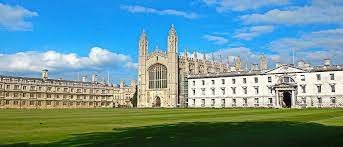Pursuing a master’s degree can be a transformative journey that opens new career pathways and expands one’s intellectual horizon. However, the cost of graduate education can often be a barrier. Argentina, known for its rich culture, vibrant cities, and robust educational system, offers a wide range of affordable options for those looking to advance their studies without breaking the bank.
This blog post explores some of the most cost-effective universities in Argentina for pursuing a master’s degree, along with an overview of their school fees.
Requirements For Master’s Degree In Argentina
Below are the general requirements for a master’s degree in Argentina.
- Bachelor’s degree: Applicants must hold a valid bachelor’s degree from an accredited institution.
- Language proficiency: Proficiency in Spanish is often required, as most programs are conducted in Spanish. Specific language requirements can vary by program.
- Application form: Completion of the university’s application form is necessary for admission consideration.
- Academic transcripts: Official transcripts from all post-secondary institutions attended must be submitted.
- Letters of recommendation: Typically, two to three letters of recommendation are required, focusing on the applicant’s academic and professional abilities.
- Statement of purpose: A written statement outlining the applicant’s academic interests, professional goals, and reasons for choosing the specific program.
- Entrance exam: Some programs may require passing an entrance exam or a personal interview as part of the admission process.
International students must comply with Argentine visa regulations to study in the country.
Read Also: How to Study Bitcoin and Cryptocurrency at Princeton University
Cheap Schools and Universities In Argentina for Master’s Degrees and Their School Fees
Check out the below list of Cheap Schools and Universities In Argentina for Master’s Degrees and Their School Fees
1) University of Buenos Aires (UBA)
At the forefront of higher education in Argentina, the University of Buenos Aires (UBA) commands respect globally for its extensive array of master’s degree offerings across numerous disciplines.
Distinguished by its commitment to accessibility, UBA stands out by providing its graduate programs at no tuition cost. While this remarkable policy enables a wide range of students to pursue advanced degrees, attendees should anticipate minor administrative fees and material costs. These expenses are generally nominal, ensuring that the financial barriers to advanced education remain low. UBA’s approach underscores its dedication to fostering academic growth without imposing significant financial strain on students.
Estimated tuition fees: $2500
2) National University of La Plata (UNLP)
Situated in La Plata, the National University of La Plata (UNLP) is recognized for its wide-ranging graduate programs spanning from Natural Sciences and Engineering to Law and Humanities. Echoing the ethos of public higher education in Argentina, UNLP ensures that its master’s degrees are accessible without tuition fees for all students, irrespective of their nationality.
However, individuals enrolling in these programs are expected to handle modest administrative charges. These minimal costs help maintain the university’s high standard of education while keeping it financially feasible for students from various backgrounds. UNLP’s commitment to providing quality education at minimal costs solidifies its position as a leading institution for graduate studies.
Estimated tuition fees: $6500
3) National University of Cordoba (UNC)
Established as one of Argentina’s most venerable institutions, the National University of Cordoba (UNC) prides itself on a diverse range of master’s degree programs, with particular strengths in the fields of Health Sciences, Humanities, and Social Sciences.
Aligning with the Argentine public university tradition of accessible education, UNC offers its graduate programs tuition-free. Students considering UNC will need to account for some administrative fees and the costs associated with textbooks and course materials, which are necessary for their studies. This approach allows UNC to maintain its esteemed position by making advanced education accessible to a broad spectrum of students.
Estimated tuition fees: $5500
4) National Technological University (UTN)
The National Technological University, a beacon for aspiring engineers and technologists, is renowned for its concentrated focus on engineering, technology, and applied sciences. Unlike the public universities that dominate Argentina’s educational landscape with free tuition, UTN does implement a tuition fee for its master’s programs.
However, these fees are notably affordable, especially when compared to international standards. Students can expect to pay between $1,000 and $2,000 annually for their studies, depending on the chosen program and course load. This cost-effective structure allows UTN to offer specialized and high-quality education in the rapidly evolving sectors of engineering and technology, making it a compelling choice for students worldwide.
Estimated tuition fees: $6000
5) National University of Rosario (UNR)
Situated in Rosario, the National University of Rosario (UNR) distinguishes itself with robust offerings in Social Sciences, Health Sciences, and Law. UNR blends academic rigor with financial accessibility, charging modest tuition fees for its master’s degree programs.
The cost, generally ranging from $500 to $1,500 annually, underscores UNR’s commitment to making higher education attainable. This pricing strategy positions UNR as a desirable choice for students pursuing quality education without the financial strain associated with higher learning. With its emphasis on affordability, UNR continues to attract a diverse student body eager to engage in advanced studies across a variety of disciplines.
Estimated tuition fees: $2000
FAQS
How much does it cost to study in Argentina for international students?
On average, international students can expect to pay tuition fees ranging from USD 2,000 to USD 8,000 per year for master’s degree programs. Additionally, students should budget for living expenses, including accommodation, food, transportation, and healthcare.
Which country is best for Masters with low fees?
Several countries are known for offering master’s degree programs with relatively low tuition fees compared to others. Some popular destinations for affordable master’s degrees include Germany, Norway, Finland, Sweden, and Belgium. These countries often have tuition-free or low-cost education systems for international students, making them attractive options for pursuing higher education.
Is Argentina good for the Masters?
Argentina can be a good option for pursuing a master’s degree, especially in fields such as social sciences, humanities, and arts. The country is home to several reputable universities that offer master’s programs in diverse disciplines. Argentina also has a rich cultural heritage, vibrant academic environment, and relatively affordable tuition fees compared to other countries.
Can international students work in Argentina?
Yes, international students are allowed to work part-time while studying in Argentina. However, there are restrictions on the number of hours students can work per week, typically limited to 20 hours during the academic term and full-time during vacation periods. International students must obtain a work permit from the Argentine immigration authorities to legally work in the country.
How much is the student visa fee in Argentina?
The student visa fee in Argentina varies depending on the applicant’s nationality and the type of visa required. Generally, the visa application fee for students is around USD 150 to USD 200. In addition to the visa fee, applicants may need to pay for other expenses such as visa processing fees, medical examinations, and document translations. I
Conclusion
Argentina shines as a beacon for students aiming to pursue their master’s degree without the financial burden commonly associated with such advancement. The nation’s educational landscape is dotted with esteemed public universities that champion affordability and inclusivity, offering quality programs at minimal to no cost. For specialized fields like engineering and technology, institutions such as the National Technological University present highly competitive rates.
Alongside the cost benefits, studying in Argentina allows students to dive deep into its rich cultural tapestry, enhancing their academic journey. Prospective scholars should weigh their academic interests, proficiency in Spanish, and financial considerations carefully to select a program that aligns with their aspirations and resources, promising a fulfilling educational experience.






